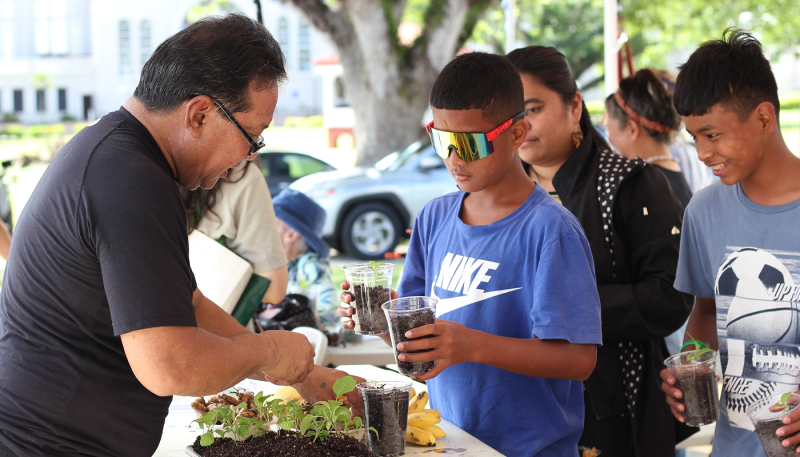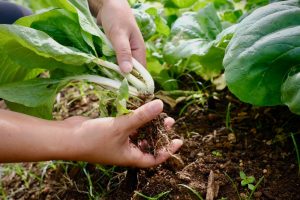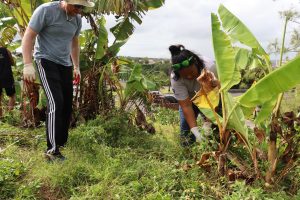
Guåhan Sustainable Culture works to promote food sovereignty and security on Guåhan (CHamoru for Guam). Despite the island’s tropical climate and year-round growing potential, Guåhan imports more than 90 percent of its food. Much of this is ultraprocessed and unhealthy, contributing to high rates of diabetes and obesity. COVID-19, natural disasters including typhoons, and geopolitical uncertainty have all led to food shortages and volatile prices in recent years. GSC was founded in 2019 to help local farmers and food producers rebuild Guåhan’s pre-colonial agricultural economy and improve self-sufficiency. Their community gardens grow culturally relevant staples like dagu (yams), suni (taro), and lemmai (breadfruit), and their educational programs teach youth how to harvest and enjoy nutritious traditional foods. Through cultivation and cultural education, GSC is building resilient communities, championing food justice, and promoting sustainable farming across the island.

A volunteer harvesting pechay (bok choy) from the Hagatna G3 (Guam Green Growth) Community Garden. Photo: Emily Spencer
GSC has 10 paid staff, seven board members, and hundreds of volunteers from Guåhan’s indigenous and multi-ethnic community. Since 2019, they have built three community gardens and 11 school gardens and distributed more than 10,800 pounds of donated produce to local residents. When Typhoon Mawar destroyed crops in 2023, they distributed nearly $30,000 in relief microgrants to 120 farmers and have purchased nearly $200,000 worth of fresh local produce from them. GSC offers farmers financial planning support and workshops on sustainable farming, hydroponics, aquaponics, and indoor gardens. Their CHamoru language garden tours use traditional words to showcase Guåhan’s farming and culinary heritage, improving knowledge of indigenous language and culture. In late 2024, GSC acquired 50 acres of historic agricultural land. They plan to transform it into a Food Resiliency Hub with small plots where people can sustainably grow and sell crops that are resilient to climate change via local markets.

Volunteers remove weeds around a tongkon aga’ (banana plant) at the Sagan Kotturan CHamoru Community Garden. Photo: Guåhan Sustainable Culture